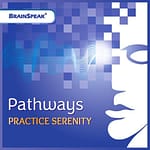Why is it that resolutions are more popular to make at the start of a New Year rather than later in the year? It is what I like to call the "Monday Effect," but on steroids! Studies show that people tend to feel more optimistic about making changes at the beginning of the week, at the start of the month, etc.
But the beginning of a new year - and this year is even a new decade! - is the most inspirational of all. We feel like we can start over with a clean slate to make changes that will increase our happiness, give us better health, and get our spaces better organized.
There are countless articles directing us how to achieve what we want by making small changes, dropping bad habits, and approaching life a little differently. It can be difficult to sort through all of them, so we created a summary of some of the best ones we have found (Click on any title you are interested in to read the entire article).
Hopefully you will find some suggestions to help you make the most of 2020 (and beyond)!
6 Things To Let Go Of If You Want to be a Tiny Bit Happier This Year
By Stephanie Barnes
These are all great suggestions for unhealthy habits to kick to the curb this year. You don't have to try to do them all at once, but the more that you can implement the happier you will be!
- Comparing your life to what you see on Social Media - remember, people tend to not only post the highlights of their lives, they often embellish the truth so that things seem even rosier than they may actually be.
- Holding on to fear, guilt and regret, which often makes us pass up opportunities to do what we really want to do.
- Worrying about things that are out of your control - that is just a waste of your energy. Instead, focus on things you can do something about and let that other stuff go.
- Keeping Grudges - letting all of that anger and hurt constantly make you feel bad reduces your chances for happiness. Try forgiveness, and either mending relationships or letting them go.
- Being concerned about how others think of you - their opinion of you is none of your business! There is no way you can please all the people you know all of the time, so nurture true friendships and don't worry about the others.
- The need to be right - how many times have you extended a conflict because you had to be right? This can lead to broken relationships and feelings of guilt and regret as you look back on the argument. A better way to look at conflicts could be to recognize that there is a problem that needs to be solved that you can work on together.

Remove Fear of the Present, Guilt From Past and Worry About the Future
11 Out-of-the-Box Fitness challenges That Our Editors Want You to Try in 2020
By Maggie Ryan
These challenges will help you keep your stress levels under control and most will give you more energy. They are not all "fitness" in the way we are used to thinking about that word, it is more about Life Fitness than simply physical fitness.
- 20 minutes earlier to bed, it can help reduce stress and give you more energy.
- Daily meditation - start with 5-10 minutes daily. If you need a little help, try an app like Headspace that will guide you.
- 25-50 pushups each day - you can start with something smaller, or a different exercise, but it will help you stay motivated.
- Eat a handful of almonds before a meal - it helps you feel full, and that may keep you from eating more than you need.
- Get more protein - it will give you more energy and may lessen cravings.
- Make your bed in the morning - it reduces stress and helps encourage other healthy habits (and it is easy!).
- Work out for 10 minutes a day - adding more movement helps your energy and your brain - there is actually a new book at that is devoted to this topic, The Joy of Movement by Kelly McGonigal, PhD.
- Walk at least 10,000 steps per day - this is a great goal for students or desk-bound workers: too much sitting is bad for your health in so many ways.
- Daily Yoga practice - even just a few minutes a day can help you feel stronger and more flexible.
- Drink 1 gallon of water per day - ok, that is a lot of water but trying to drink this much can help you find the amount you really should be drinking. Most of us are more dehydrated than we know.
- Consume less unhealthy foods - that goes for drinks as well. Sugar is not our friend, nor are hydrogenated fats and high-fructose corn syrup!

Experience deep peace of mind, balance your energy, and reduce mental stress.
5 Kitchen Resolutions That You Can Actually Stick With in the New Year
By Becky Krystal
Not everyone spends a lot of time in the kitchen, but for those that do this advice is priceless. It will make your kitchen a better place and the contents more useful.
- Organize! That means under the sink, the junk drawer(s), spices, kitchen tools. Tackle one area at a time and weed out what you rarely (if ever) use.
- Take better care of your tools - if you don't know how, find out! Season your cast iron, don't overheat nonstick pans, find out what really should be washed by hand.
- Use less plastic and disposables - there are lots of options out there these days, so help us all make less waste for our planet!
- Better storage for your fruits and vegetables - find out what should be separated in your fridge for longevity and what should be stored outside of the refrigerator all together!
- Keep your kitchen cleaner. Get dishes washed or in the dishwasher, spills cleaned up, recipe items put away. This article has links to some tools to help you make the job easier.
5 Small New Year's Resolutions That You Can Actually Keep
by Emily Holland
Most of this advice will take very little of your time, but each one of them will help your brain to be healthier and make you feel good.
- Add 1 healthy habit to your routine. These can sometimes help to crowd out unhealthy habits. For example, if you want to stop snacking in the evening, try to eat a healthy and filling meal for dinner so that you don't have such an urge to snack afterwards. This is the same principle that our friend Julia Scalise, DN, PhD wrote about in her book, Do One Thing. It is difficult to make a lot of changes at once, but just adding 1 new healthy habit is doable.
- Redefine your relationship with stress. Instead of viewing stress as the enemy, use it to help motivate you to reach your goals. You can also view it as a messenger into the root cause of that stress, which can help you identify needed changes.
- Do something nice for someone every week. Small acts of kindness have great benefit, both for you and the recipient. It doesn't have to be a big thing, give someone a sincere compliment or listen more than talking with a friend or colleague.
- Learn a new skill or find a new hobby. Learning something new is great for your brain, both for stimulating brain power and reducing cognitive decline. Taking a class in something outside your comfort zone will give you the best rewards.
- Give yourself a minimum of 10-minutes of time for self-care. This can be a 10-minute walk or workout, meditation, a relaxing bath, etc. If you happen to accidentally take more than 10-minutes - OOPS! How nice for you!
Are You Still Making Resolutions? Try Three Words Instead
By Alisa Cohn
This article was an interesting twist on the usual resolution theme, and we thought it was worthy of inclusion here. Since about 80% of resolutions tend to be lost only a month later, Alisa uses 3 words to remind her of where she wants to put her energy and focus to achieve a great year.
- Experimentation. Try expanding yourself by trying something new - take a class, volunteer, give more time to something you love. These little journeys into something new could be sewing the seeds of your future. And trying new things is good for your brain, as we have mentioned before! It is also only trying, so if it doesn't work out you didn't fail - as she says in her article:
"When you try and fail you ask “what went wrong?” When you experiment you ask “what did you learn?” I am embracing that question in 2020."
- Generative. Give yourself some down time so that the rest of the time you can be at your best. Get more sleep, do daily meditation, try writing in a journal.
- Systems. I love this concept, and we talk about systems a LOT at BrainSpeak. Systems provide a way to keep you accountable and on track. It frees up energy so you don't have to rethink how to do something every time you do it.
These are the 3 words that the author chose to work with for 2020, but you can come up with your own concepts. 3 little words that can remind you how to make the most out of the whole year.
Conclusion
Unlimited suggestions exist for how you might be in a better place at the end of the year than in the beginning. Just don't try to take on too many changes at once, that is hard for your brain to handle. And remember, if many of the above concepts sound appealing to you, you don't have to implement them all at the same time. It really doesn't have to be the start of a new year for the change to be successful!
But you may want to start on a Monday!
